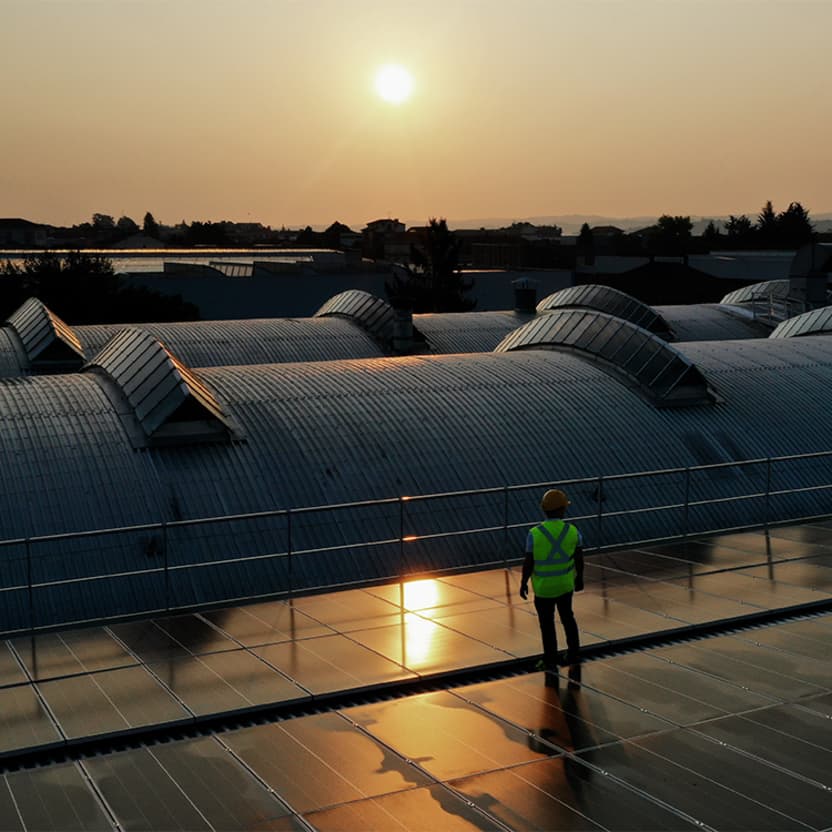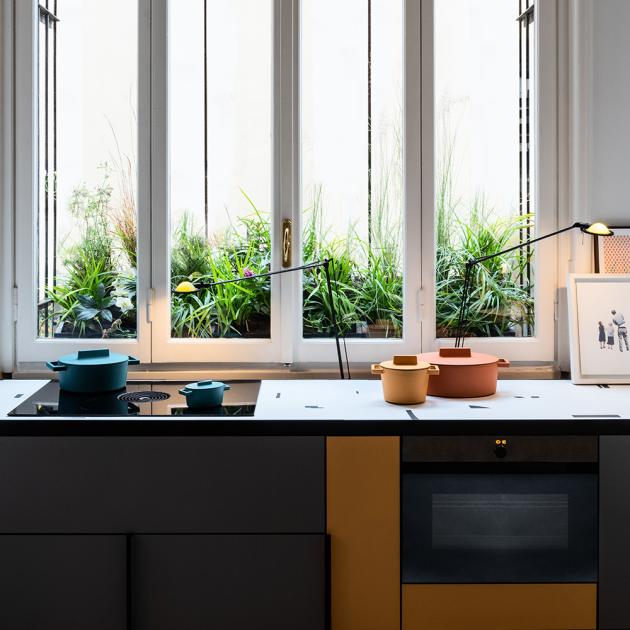
Sustainability Approach
In 2013, Arpa Industriale launched FENIX®, an innovative material for interiors developed by an international, multidisciplinary team thanks to proprietary technologies. Since then, reducing the carbon footprint has become a key part of our overall sustainability policy. Next to the belief that improving the environmental footprint is not only the right thing to do, we are also convinced that it is essential to safeguard the business continuity of our Group and its brands.
That is why sustainability is also well embedded in our plans and high on our agenda, summed up in the Group’s mission “making real impact for less impact.”
The approach is straightforward: we measure our impact, select targets to reduce this impact and monitor and report on progress. To measure our impact, we use the Life Cycle Assessment (LCA) methodology. LCA captures the details of the entire environmental footprint of our products.
MAKING REAL IMPACT FOR LESS IMPACT
Our sustainability mission underlines the constant commitment of our Group.
It means putting into action investments to minimise the environmental impact in all of the operations and products and, consequently, reduce our footprint.
This long-term strategy consists of two main pillars: the replacement of the most impactful inputs and the improvement of the efficiency of our materials and processes.
Besides acting on manufacturing process, our Group is actively exploring less impacting raw materials. Although FENIX is already prevalently made of renewable materials (wood fibres), Nemho—our centre of excellence for technology—is engaged on further increasing its renewable content by replacing raw materials of fossil origin with bio-based alternatives. One of these achievements is well represented by the Bloom technology.
Last but not least, durability granted by the FENIX surface properties plays a strategic role in preventing the need for a product replacement. This means reducing the use of resources and the production of waste, and the associated environmental impact.
Our suppliers play a key role, too, as we want to encourage an active dialogue with them on how to improve our environmental performance. Moreover, we aim to support our customers in their sustainability challenges. This is also well related to durability thanks to the creation of products that have a long lifespan and, thus, limit the need for their replacement.
So, even though we still have an impact, we are actively working to reduce it.

Fact-based approach
We firmly believe that you cannot manage what you do not measure. Addressing sustainability and reducing our carbon footprint start with the quantification of the impacts. So in order to manage we need to measure.
How? The Life Cycle Assessment (LCA) methodology represents the most reliable and fact-based tool to evaluate the environmental burdens associated with the entire life cycle of a product, process, or activity. This is done through the identification and quantification of the energy, water and materials used and the waste and emissions released into the environment.

Our Group’s strategy
Sustainability became key part of our Group’s License to Operate (LTO) strategy in 2010 and a lot of effort has been put since then to improve our environmental performance through the implementation of a number of projects and activities.
A key element of this approach is being highly transparent about our current environmental footprint, as well as the plans and targets for reducing it. Our Group has implemented a common sense, fact-based strategy to sustainability, focused on an integrated cradle-to-gate approach.
We apply a cradle-to-gate approach because we have decided to focus on the stages that are under our control and that we can influence. This allows us to improve our processes by increasing efficiency and selecting less impactful raw materials.
For the first time, we have published a consolidated paper presenting our sustainability philosophy, approach, and impact results at a Group level.
The Group Position Paper focuses on our environmental impact, prioritising carbon emissions. In addition to the carbon footprint data from our manufacturing plants, the paper showcases key initiatives and provides concrete examples that illustrate our efforts and progress in reducing carbon emissions.
As we recognise the importance to assess the whole life cycle of our products, starting from this first Group paper, we have decided to quantify our footprint from cradle-to-grave, while our primary focus remains on cradle-to-gate. At the same time, we separately report the biogenic carbon uptake of our products to clearly highlight the biogenic carbon they store.
This Group Position Paper highlights the collective efforts of the Broadview Group to mitigate the environmental impact of our manufacturing plants. Every day, we collaborate as a unified team towards our shared goal: minimising our impact on climate change.



